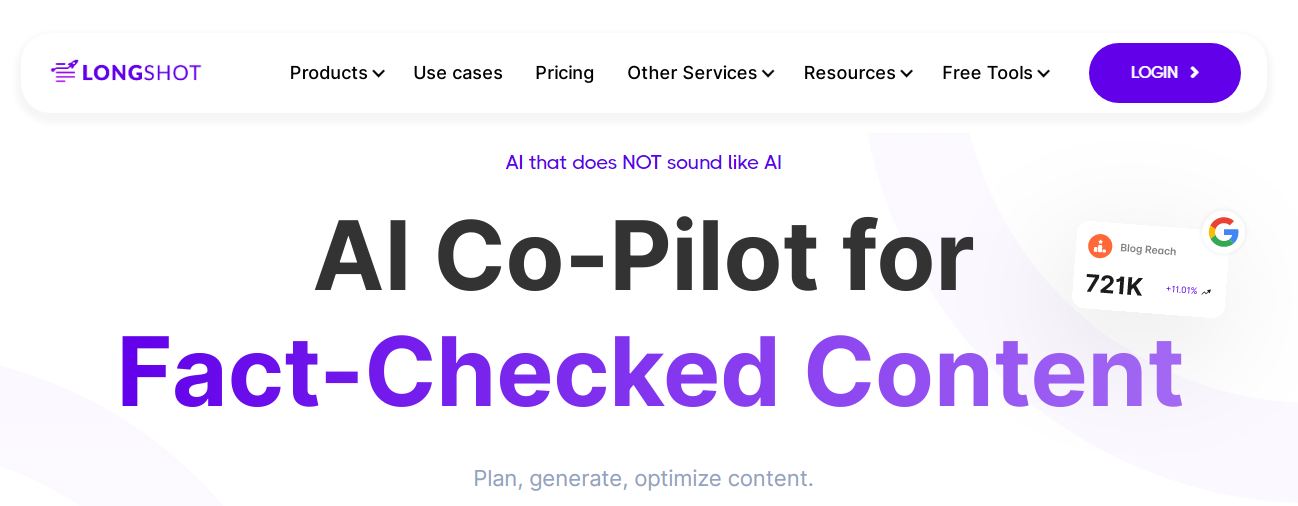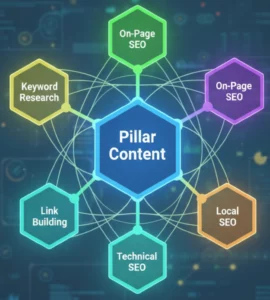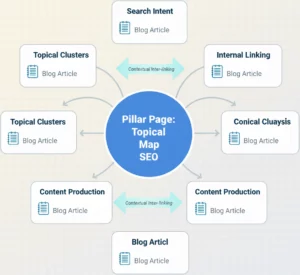
In the digital age, SEO is a fundamental pillar of any content marketing strategy, inevitably leading to the crucial question: how can this strategy be optimized with the right tools? An AI Writer represents an innovative answer, but what is its capacity to integrate with other technologies? Let’s dive together into this fascinating universe.
Table of Contents
ToggleUnderstanding an AI Writer and its Functions
Basic Principles of an AI Writer
An AI Writer, or automated writing software, uses artificial intelligence to generate texts based on complex data and algorithms. It’s not just a writing tool; it’s an advanced interface that understands the language and structure needed to produce coherent and relevant documents.
The Benefits of Using an AI Writer for Content Writing
Using an AI Writer offers numerous advantages: incredible time savings (imagine producing articles in just a few minutes), scalable content without sacrificing quality, and of course, effective SEO support thanks to its almost instinctive ability to optimize content for search engines.
Complementary Technologies to Integrate with an AI Writer
Semantic Analysis and Natural Language Processing (NLP)
Natural Language Processing (NLP) is fundamental for an AI Writer. It allows for advanced semantic analysis, which helps understand and respond to queries with precision, an essential feature for producing high-quality SEO content.
Task Automation with Platforms like Zapier
Integrating an AI Writer with platforms like Zapier can automate complex workflows, allowing you, for example, to directly publish your content across different channels or perform keyword research without manual intervention.
Integration with Content Management Systems (CMS)
An AI Writer can be integrated with CMS to write content directly within the publishing environment, streamlining the online posting process and ensuring perfect alignment with the SEO guidelines of various platforms.

The Impact of AI Writers on SEO and Content Marketing
Search Engine Optimization with AI
AI Writers come equipped with features to fine-tune the SEO of each article without additional effort. From tags to keywords, to meta descriptions, everything is optimized to please Google and your readers.
Personalization and Targeting Content with Machine Learning
AI is capable of learning and personalizing content based on user data. This allows for precise targeting and enhances user engagement with content that exactly meets their expectations and needs.
Practical Use Cases of AI Writers Integrated with Other Technologies
Automatic Creation of Product Descriptions for Online Stores
Imagine an AI Writer coupled with an e-commerce database that generates unique product descriptions in just minutes. This revolutionizes content creation for online stores, making the process more efficient and aligned with SEO practices.
Blog Post Generation Based on Structured Data
By integrating an AI Writer with structured data analysis solutions, you can automatically create content that directly addresses your target audience, optimized for SERPs and ready to engage your visitors.
Automating the Creation of Marketing Content on Social Media
An AI Redactor integrated with social media platforms allows for designing and scheduling captivating posts that strengthen your online presence and engage your community.

Challenges and Ethical Considerations of Using AI Writers
Reliability and Accuracy in Content Generation
Despite their advancements, AI assisted Writers are not infallible. Reliability and accuracy remain major challenges. For instance, the generated content may sometimes lack the nuances that only a human writer could provide.
Debates on Content Originality and Plagiarism Risks
The originality of AI-generated content is also a controversial topic. There is a risk that the content might be too similar to existing sources, raising questions about plagiarism and authenticity.

Ethical Considerations Related to Replacing Humans with AI in Content Creation
More philosophically, the gradual replacement of human creation by machines poses significant ethical questions about the future of writing and creative work in general.
Case Studies and User Testimonials
Stories of Companies that Integrated AI into Their Writing Processes
Through various case studies, it is fascinating to see how companies integrate AI to enrich their content. For example, the tool Longshot was used to produce blog articles en masse, significantly increasing web traffic.

Tangible Statistics and Results Achieved by Integrating AI Writers with Other Technologies
The results are clear: increased traffic, better conversion, more relevant content… statistics show that AI has a real and measurable positive impact on SEO and content marketing when well integrated.
User Feedback and Recommendations
Users of Peppertype or Writesonic, for instance, testify to the effectiveness of these tools for producing content quickly and help in decision-making for companies still hesitant to take the plunge.
Future Trends in AI Writers
The Evolution of AI Capabilities in Writing
As AI progresses, AI Writers are becoming increasingly sophisticated, opening the door to an ever-wider range of possibilities in content creation.
Predictions on the Integration of New Technologies with AI Writers
AI Redactors are expected to soon integrate new technologies, such as augmented reality or blockchain, to offer an even more enriched writing and publishing experience.
The Possible Role of AI in the Writing of Tomorrow
The future looks promising for AI in writing. Tomorrow, artificial intelligence could well become a full-fledged editor-in-chief, capable of driving complex and varied content strategies.

AI-assisted content writing offers fascinating prospects for SEO and content marketing. Integrating an AI Writer with other technologies can transform how we create, distribute, and manage online content. Are you ready to adopt these changes to stay ahead in your field ?

Eric Ibanez
Co-fondateur de Hack The SEO
Eric Ibanez a créé Hack The SEO et accompagne des stratégies SEO orientées croissance. Il est aussi co-auteur du livre SEO pour booster sa croissance, publié chez Dunod.
Suggested Articles




